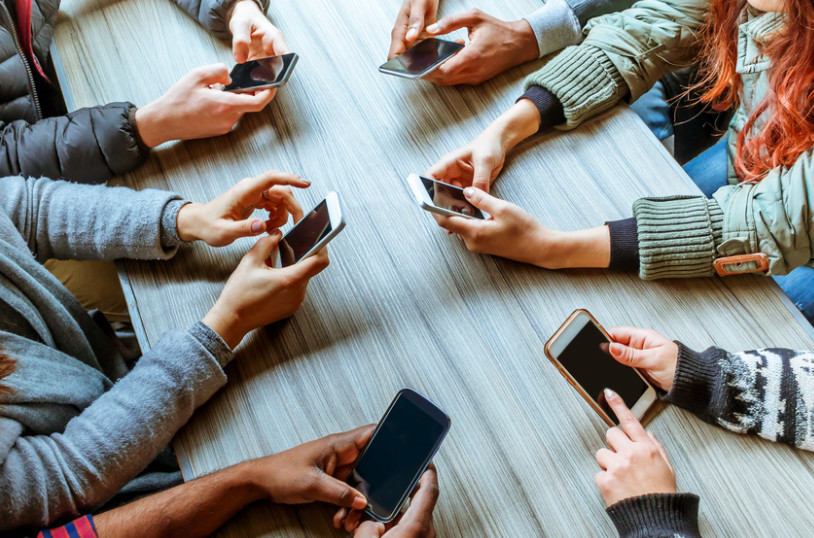Social Media Drawbacks for Students: What You Need to Know

Strong 8k brings an ultra-HD IPTV experience to your living room and your pocket.
In today’s fast-paced digital world, social media has become a central part of students’ lives. From Instagram and Snapchat to TikTok and YouTube, these platforms have changed the way students communicate, learn, and express themselves. While social media offers countless benefits, including easier access to information and a way to stay connected with friends and family, it also comes with several serious drawbacks. Social media disadvantages on students that can impact mental health, academic performance, privacy, and even personal development.
The Mental Health Toll
One of the biggest concerns with social media use among students is its impact on mental health. Studies have shown that excessive social media use is strongly linked to increased levels of anxiety, depression, and loneliness. Constantly seeing edited, filtered, and carefully curated content can make students feel inadequate about their own lives. This leads to unhealthy comparisons, creating a cycle of self-doubt and low self-esteem.
Moreover, the pressure to receive likes, comments, and shares makes students dependent on external validation. Instead of developing confidence from within, many start measuring their self-worth based on online feedback. Over time, this can contribute to social anxiety and feelings of isolation even when surrounded by people.
Academic Distractions and Reduced Focus
Another significant drawback is the negative impact on academic focus and productivity. Social media is designed to be addictive, with endless scrolling features, trending content, and constant notifications. Students who frequently check their social media accounts often find it difficult to concentrate on their studies. As a result, assignments may be delayed, exam preparation suffers, and overall academic performance declines.
The habit of multitasking—studying while checking notifications or watching videos—can lead to reduced comprehension and retention of information. This ultimately affects learning outcomes and can increase stress levels as deadlines approach.
Privacy and Safety Concerns
Students, especially younger ones, may not fully understand the importance of online privacy. Many overshare personal details such as their location, daily routines, and personal feelings without considering the risks. This can make them vulnerable to cyberbullying, online harassment, and identity theft.
Additionally, once something is shared online, it is often permanent, even if it’s deleted later. Inappropriate posts or photos can resurface and harm a student's reputation, affecting college admissions or future job opportunities. It’s important for students to learn about privacy settings and think carefully before posting content.
Effects on Sleep and Physical Health
Late-night scrolling is another major issue among students. Many stay up late to watch videos or catch up on social media updates, which disrupts their sleep patterns. Lack of quality sleep affects not only concentration and memory but also emotional stability and physical health.
Sleep deprivation can weaken the immune system, cause irritability, and reduce overall energy levels. Over time, this can lead to more serious health problems and hinder academic and personal development.
Impact on Real-Life Relationships
While social media allows students to stay connected online, it can ironically weaken real-life relationships. Face-to-face interactions are replaced by virtual communication, leading to a lack of genuine social skills. Students may struggle with building meaningful connections in real life, and this can result in feelings of loneliness despite having many online “friends.”
Furthermore, spending too much time online reduces opportunities for participating in outdoor activities, hobbies, and sports, all of which are important for personal growth and building healthy relationships.
How Students Can Detox from Social Media
Despite these drawbacks, social media can be managed in a way that minimizes its negative effects. Here are some practical tips for students:
- Set clear time limits for social media use each day.
- Turn off notifications to avoid constant distractions while studying.
- Take digital breaks and spend time offline doing activities like reading, exercising, or spending time with family and friends.
- Be mindful of what you share and always consider long-term consequences before posting.
- Unfollow or mute accounts that promote negativity or make you feel bad about yourself.
- Practice self-care by engaging in hobbies and activities that boost confidence and happiness offline.
Final Thoughts
Social media is an incredibly powerful tool, but it’s essential for students to understand its potential drawbacks. By being aware of how social media affects mental health, academic focus, privacy, and relationships, students can make conscious choices about how they use it. The goal is not to avoid social media completely but to create a healthy balance that supports personal growth and academic success.
When used wisely, social media can enhance learning and keep students inspired. However, it is up to each individual to set boundaries and prioritize well-being above likes and views.
Note: IndiBlogHub features both user-submitted and editorial content. We do not verify third-party contributions. Read our Disclaimer and Privacy Policyfor details.


